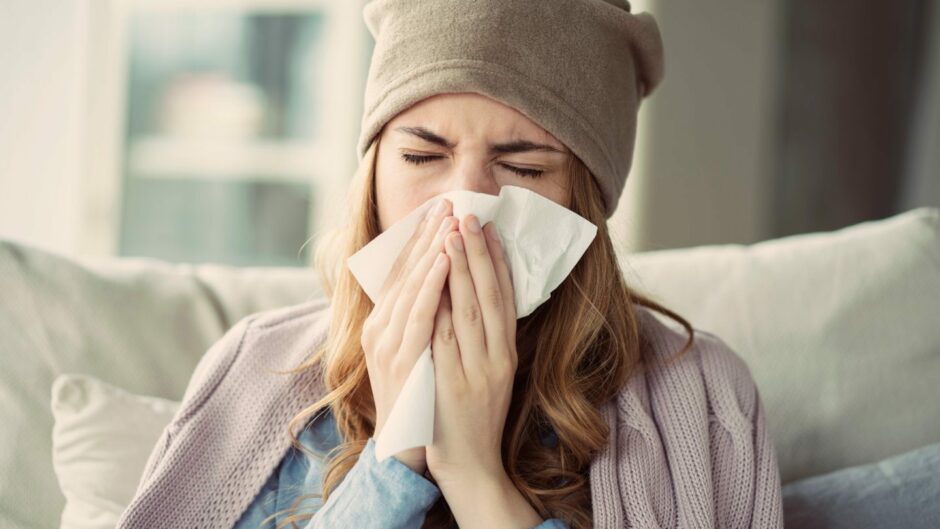
Now that COVID restrictions have eased and people are returning to the workplace or to leisure activities in larger numbers – and with the possibility that even those who have preferred to remain working from home may now choose to work from the office as fuel costs rise – what could be the consequences for our health as we move into winter?
Everyone will be aware of the disruption that can be caused when a virus spreads through the workforce and the difficulty in maintaining normal operations – so it is important to put in place some sensible measures to avoid the spread of infection.
As more people congregate indoors, what are we likely to see in terms of the common winter viruses? There is a strong possibility that fewer people will have built up natural immunity to the common winter bugs – and particularly flu. While flu is unpleasant for most people, it can be dangerous and even life-threatening for some people – principally those with certain health conditions. And research shows that, if someone were to contract flu and COVID-19 at the same time, they would be more likely to be seriously ill.
Symptoms of flu and COVID-19 are similar, especially in the early stages – both may cause people to be unwell for several days to a week – sometimes even longer. Only a test can confirm whether the symptoms are caused by flu or COVID-19.
Flu vaccination is a safe and effective way of preventing illness and reducing the spread of flu. Strains of the influenza virus change from year to year – which is why the flu vaccine is required annually.
Are there any risks or side effects to having a flu vaccination?
The most common side effect is soreness at the vaccination site – this usually settles within one or two days. Some people may have a mild fever or tiredness for a day or two after having the influenza vaccine. Any contraindications will be discussed prior to the vaccination being administered.
What are the other health issues we might see this winter that could affect people in close contact with each other? Sometimes referred to as the winter vomiting bug, Norovirus is the most common cause of gastroenteritis. It presents with diarrhoea, vomiting and stomach pain; and possibly also fever and/or headaches. There is no specific treatment other than to rest and rehydrate. Dehydration can become a serious complication – in which case the person should contact their GP.
Norovirus can be contracted from close contact with someone with the virus; from touching surfaces or objects that have been touched by someone with Norovirus; or from eating food prepared or handled by someone with Norovirus. Frequent handwashing with soap and water is the best way to stop the virus spreading – alcohol hand gels do not kill Norovirus.
What can people do to stay healthy over winter?
It can be tempting to opt for comfort food when it’s cold, but people will actually have more energy if they include plenty of fruit and vegetables in their diet. People should also try to get outdoors in natural daylight as much as possible and not be tempted to hibernate – regular exercise helps control weight and boost the immune system.
Vitamin D has a number of important functions and supports bone and muscle health; and vitamin D may have a role in the body’s immune response to respiratory viruses. Exposure to sunlight is the main source of vitamin D for most people, but for those who spend much of their time indoors or in climates such as ours where we don’t see much sun over winter, it can be more difficult to absorb vitamin D. Current government advice is that people take a daily vitamin D supplement to maintain bone and muscle health during the pandemic.
By adopting some simple infection control measures and ensuring people have been vaccinated against flu and are aware of how to keep themselves healthy as we head into the colder months, it should be possible to lessen the effects of any decline in natural immunity that may have resulted from the pandemic.
If you are interested in finding out more about the healthcare solutions offered by International SOS and how we can support your health and wellbeing, please contact Nicola Yates or visit my.internationalsos.com/ukhealth.
Recommended for you
